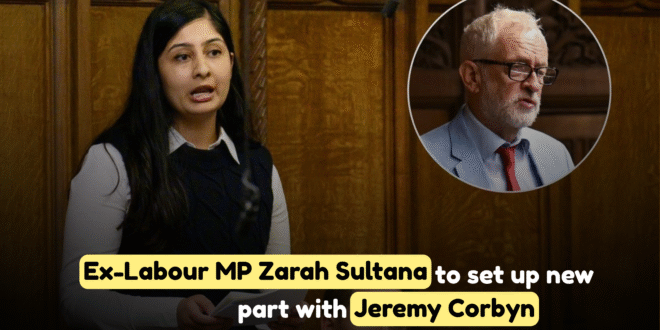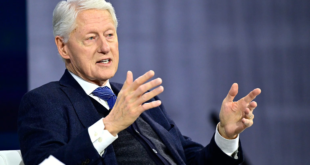In a dramatic political development, former Labour MP Zarah Sultana has officially resigned from the Labour Party and announced plans to co-found a new political party alongside former Labour leader Jeremy Corbyn. The move comes amidst growing tensions within the Labour Party and signals a significant left-wing shift in UK politics.
Background: Suspension and Principles
Zarah Sultana, elected as MP Zarah Sultana for Coventry South in 2019, was suspended from the Labour Party in 2024 for voting to abolish the controversial two-child benefit cap — a policy she claimed was pushing hundreds of thousands of children into poverty. She also opposed cuts to winter fuel payments for pensioners. Despite criticism from party leadership, Sultana remained steadfast in her actions and principles, stating she would “do it again.”
Her prolonged suspension and the lack of internal reconciliation prompted her decision to formally sever ties with Labour in July 2025. She had been part of the Independent Alliance in Parliament since her suspension, a group of MP Zarah Sultana not aligned with any official party but united in opposition to Labour’s current centrist direction.
The New Political Movement
Sultana announced her resignation and new plans via a public statement, declaring she would be co-leading the founding of a new political party with Jeremy Corbyn. This new party aims to bring together independent MPs, grassroots activists, trade unionists, and disillusioned Labour supporters.
Jeremy Corbyn, who lost the Labour whip in 2020 and ran as an independent in the 2024 general election, has been hinting at the formation of a broader political alternative for over a year. Though he has not formally declared himself co-leader, Sultana’s statement makes it clear that he will be a central figure in the party’s development.
Political Vision and Aims
The new party positions itself as a bold, unapologetic left-wing alternative. Key goals include tackling poverty, reversing austerity policies, promoting public ownership of essential services, ensuring climate justice, and developing a foreign policy rooted in peace and international solidarity.
Sultana has criticized the two-party system as offering “managed decline” and believes the new party can offer real hope. She called the current political model broken and incapable of delivering for working people. Jeremy Corbyn echoed similar sentiments, saying the time had come to create a political force grounded in equality, social justice, and democratic values.
Reactions and Implications
The announcement has drawn mixed reactions. Some see it as a long-overdue realignment of the left in Britain, while others warn it could fragment the progressive vote and indirectly benefit the Conservatives. Labour has responded by reiterating its commitment to delivering for working families, but concerns are rising that a strong left-wing party could peel off a substantial portion of its younger and more radical voter base.
Meanwhile, figures like Nigel Farage have mocked Labour’s internal divisions, suggesting that the rise of a Corbyn-led party could hurt Keir Starmer’s chances in future elections.
Growing Momentum
Early polling suggests that such a party could attract around 10% of the national vote, with particularly strong support among younger voters under 30. With four sitting MPs already forming the Independent Alliance, the foundation for a parliamentary bloc is already in place.
FAQs
1. Why did Zarah Sultana leave the Labour Party?
A: She left due to ideological differences, especially after being suspended for voting against party lines on social justice issues. She believes Labour no longer represents progressive values.
2. Who is leading the new party?
A: Zarah Sultana has said she will co-lead the new party with Jeremy Corbyn, although Corbyn has not formally taken the title of co-leader.
3. What are the goals of this new party?
A: The party aims to fight poverty, oppose austerity, support climate justice, defend public services, and promote an anti-war foreign policy.
4. Will the new party hurt Labour’s chances in elections?
A: It could split the left-wing vote, especially among younger voters and disillusioned Labour supporters, which may challenge Labour’s electoral strength.
5. When will the new party officially launch?
A: While an exact date hasn’t been confirmed, developments suggest the formal launch could occur later in 2025, possibly before the next general election campaign intensifies.




